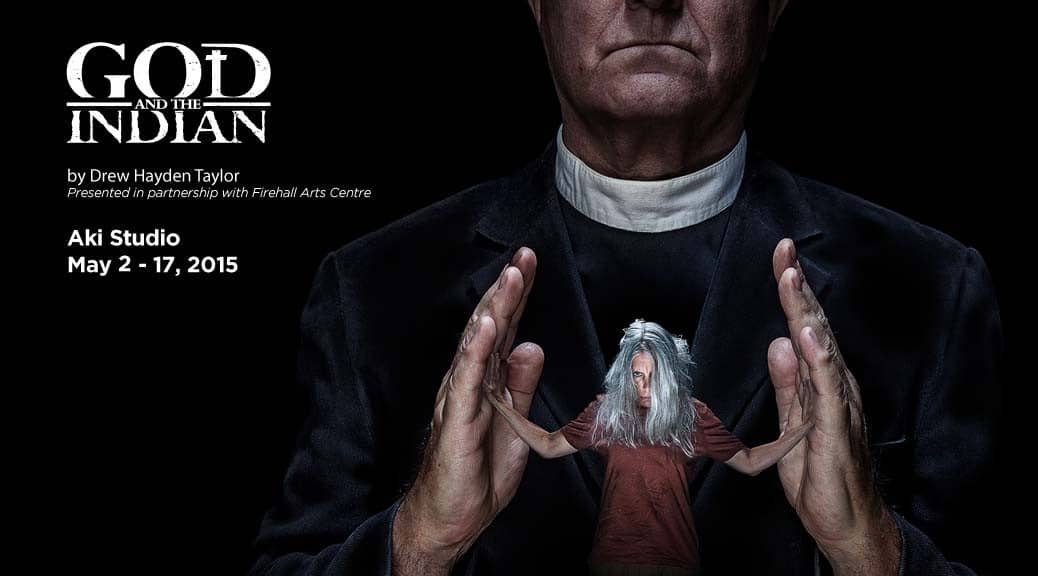One day while panhandling outside a coffee shop, Johnny, a Cree woman, comes to face-to-face with her abuser from her childhood residential school. Johnny becomes desperate to hear him acknowledge the suffering he inflicted on her and other children at the school.
Written by award-winning Aboriginal playwright Drew Hayden Taylor and directed by Renae Morriseau, God and the Indian runs from May 2 to 17, 2015 at Native Earth Performing Arts (585 #250 Dundas St E) in co-production with the Firehall Arts Centre. God and the Indian explores the complex issue of abuse within the residential school system.
We spoke to playwright Drew Hayden Taylor about God and the Indian and the important role Indigenous arts can play in Canada’s Truth and Reconciliation process.
SDTC: You wrote this play during a playwright-in-residence at Native Earth. What gave you the initial inspiration?
DHT: My initial inspiration was a challenge by the artistic producer who told me, for some reason, she didn’t want me to write anything funny, she wanted something serious. So I decided to write a play about the most serious topic I could come up with: residential school abuse.
What has been your personal experience with residential schools? How has their legacy affected you personally and those close to you?
Personally, I have little experience with residential schools myself. There was a day school on my Reserve, but much like throwing a big rock into a pond, pretty much everybody in the Native community will get splashed and feel the effects. I have known multitudes of people who have gone through that system.
What was your process like for writing this piece?
I would say the most interesting thing I found in my research was that people who were participating in the TRC (Truth and Reconciliation Committee) were not necessarily looking for money or apologies or anything vindictive. What many of them were looking for was acknowledgement, an understanding and acceptance of what they went through and what happened. That was so important.
What surprised you about yourself the most while writing this play?
What surprised me the most was that I could still find some humour in the story, albeit dark humour. But to me, that most exemplifies the Native community, humour and tragedy walking side-by-side.
Is true reconciliation possible when it comes to the legacy of the residential school system?
That is a difficult question. I would have to say that is up to the individual. I cannot answer a question like that. You must ask them.
Do you know of similar incidences in real life where those in residential schools have directly confronted their abusers?
I have only heard of stories like this, of face-to-face encounters, happening in courtrooms, so I took a page from Death and the Maiden and made it happen.
What do you hope audiences will take away from this performance?
The amazing ability of this country’s Native people to keep on surviving, no matter what the dominant culture throws at it, and to laugh while doing it.
Tickets for God and the Indian are available online.



 Follow Us On Instagram
Follow Us On Instagram
